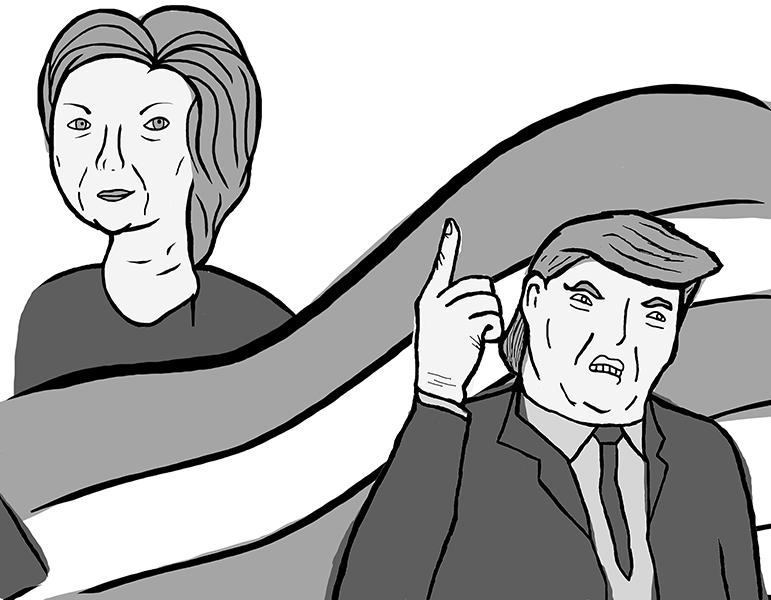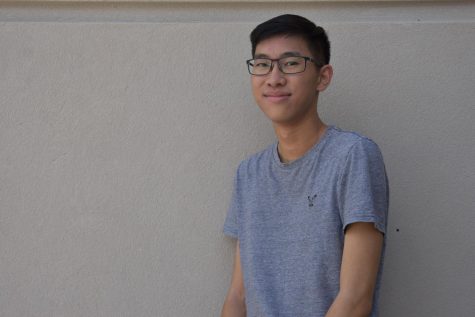Yells and shouts fill the air of a college gymnasium. Large masses of people congregate into specific areas and corners of the gym, effectively establishing their own territory. Newcomers entering the building are immediately barraged by the sight of people everywhere, either delivering grandiose speeches or engaging in aggressive arguments. Large, attention-grabbing banners and signs are constantly waved in the faces of other people rushing back and forth between the masses.
To some people, this would seem to be a scene of an odd postgame celebration. In reality, it is the chaotic Democratic caucus for Iowa.
Outside of the eighth graders, who are currently required to take civics, many students and even adults lack any substantial knowledge when it comes to the function, workings or even definition of a caucus, despite its fundamental role alongside primaries in the process of selecting our nation’s president.
The term “caucus” comes from an Algonquin word meaning “gathering of tribal chiefs.” While caucuses today don’t necessarily deal with tribal chiefs, they do act as a meeting between the members of a political party in order to decide how many delegates, or representatives of party members in each state, to send to represent each candidate at the party’s national convention. This is where the party selects their presidential nominee.
Caucuses are run by state party officials at a very specific time and place, often lasting for two or three hours. However, they have the unintended side effect of turning away the more moderate and average voter, who often is unable to cut out the large portion of his or her schedule required to attend the caucus. As a result, only a small minority of the constituency that attends caucuses are moderate independents (voters who lack substantial investment in a particular political party), despite better representing the average voter. This leaves the large majority of voters to identify as either strong Republicans or strong Democrats. Caucuses differ greatly, depending upon the parties. Republican caucuses closely resemble the voting process for general elections, where voters are simply required to cast their ballots in a private voting booth. However, Republican caucuses hold a few speeches and conversations beforehand in order for the candidates to persuade the audience to vote for them.
Democratic caucuses can be described as more of a political event than a simple voting process. However, according to David Weigel, a national political correspondent and writer for The Washington Post, “the Democratic caucus process is more complicated.” Voters congregate in a large public area, often a gymnasium, where they engage in a constant effort to persuade other voters that their candidate is superior to the others. Depending on the candidate they support, people will either group together in different areas of the gymnasium, or if they are undecided, rush back and forth in between. The number of people in each candidate’s group is counted at intervals, and if the number does not exceed a certain limit, the group is forced to disperse and find another candidate that they support. The whole process can best be likened to a chaotic game of four corners.
The purpose of a caucus is to act as a sort of test, giving an indication of how each of the presidential candidates will appeal to a broader audience of voters and considerable political momentum for the frontrunners. Thus the reason why the Iowa caucuses receive such substantial media coverage is that they are the first major electoral events of the nomination process for the President, and therefore, the first indicators of a candidate’s performance in the future.
However, the Iowa demographic of voters lacks any considerable amount of diversity in terms of education, income, race, ethnicity, sex, etc. As a result, despite their intended purpose, many, including social sciences department chair Sam Stewart, criticize the caucuses for not being an accurate representation of America’s constituency.
Similarly, the New Hampshire primaries, which have been equally hyped in recent news for being the first primaries of the electoral process, suffer the same problem as Iowa—a lack of any substantial diversity yielding inaccurate results.
“One of the weird things about primaries and caucuses, across the board, is that they primarily attract the die-hards of each party, not the moderates,” Stewart said.
Primaries differ from caucuses in a few ways. Generally, the results of a primary are less skewed due to the voting period lasting longer, making it easier for more moderate voters to partake in the event. Furthermore, primaries require less time commitment than most caucuses, as voters are only required to cast their ballot in secret and leave.
In addition, there are both “open” and “closed” primaries. At closed primaries, voters must vote for the candidates of the party in which they are registered. However, at open primaries, voters can choose to vote for a candidate from either party. Thus, a voter can either simply vote for the candidate of his or her own party or vote against the candidate of the opposing party who poses the greatest threat to his or her registered party’s candidate.
It’s important that the students of Trinity Prep recognize the significance of caucuses and primaries, because they are of paramount importance in the process of deciding who this nation’s next president will be.
“The sooner [the students of Trinity Prep] come to understand the issues and how this process works, [the sooner] it’s going to be a better country,” Stewart said.




